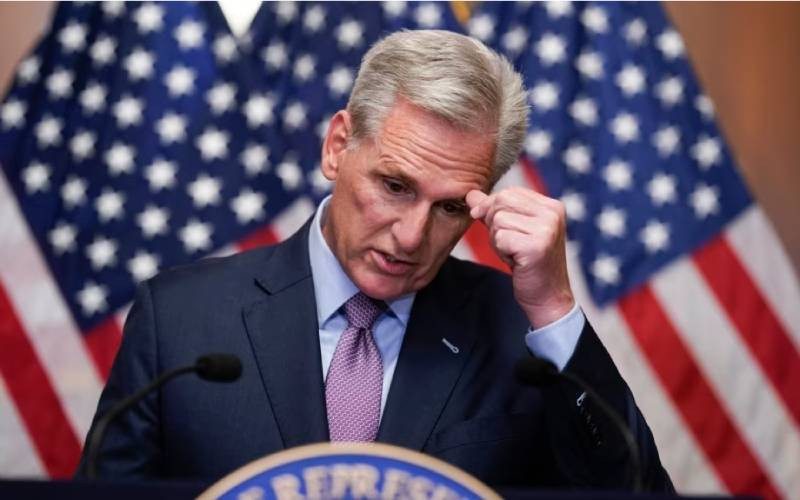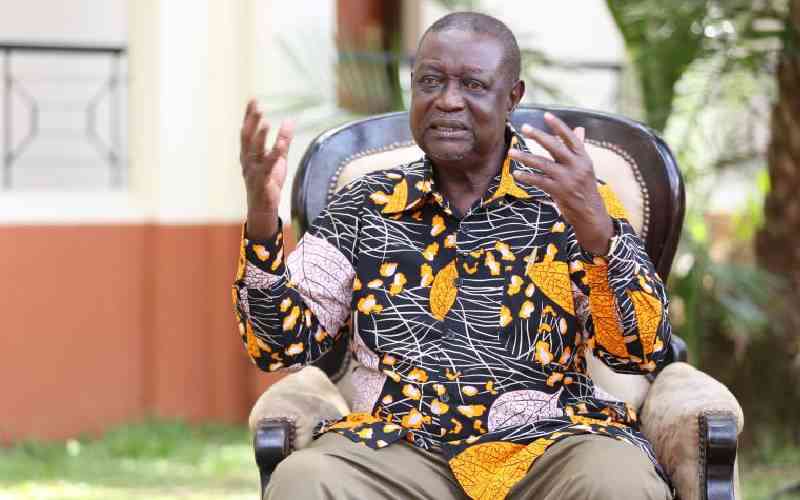I read recently that Lady Justice Joyce Aluoch had been appointed a judge of the International Criminal Court at The Hague, a significant achievement for the second woman to serve in Kenya's High Court.
The development got me thinking about my interactions and run-ins over the years with top members of the Judiciary, a class of Kenyans that is feared, admired and respected in almost equal measure. My association with members of the Bench closely mirrors this ambivalence among members of society.
Incidentally, my first face to face encounter with a member of the Bench was when I met Lady Justice Aluoch herself, and she made such a powerful impression on my young mind it is a story I never tire of retelling.
Shortly after she made newspaper headlines when she became the second judge of the High Court after retired Justice Effie Owuor in 1983, I called to make an appointment for an interview for a human-interest piece. She readily agreed.
I was a rookie reporter with the Kanu-owned Kenya Times and had actually just been trying my luck when I placed the call, and was rather surprised at the ease with which I got the appointment.
I was therefore unprepared for what transpired when finally, with the aid of older reporters on the Nairobi Law Courts beat, I located her chambers in wooden buildings on the third floor.
Being unfamiliar with the layout of judges' chambers, I did not first knock on the door that had been pointed out to me but went right in -and found a well built lady struggling to get out of a judicial gown.
When she was finally through she favoured me with a stern look and in a frosty voice demanded, "Where are your manners, young man, walking in on a lady when she is dressing?" She waved away my feeble explanations that I was the newspaper reporter who had called for an interview and ordered me out of her chambers until I was invited in.
I am happy to report that once she done with her toiletry and I got permission to enter, I found a much friendlier person and the interview proceeded without a hitch.
My next encounter with a judicial officer was in Chuka. I had been enlisted as a State witness at an inquiry into a suicide at the local court and after travelling all the way from Nairobi, I found the police prosecutors both negligent and uncooperative.
After hanging around the courtroom all morning, I was in a foul mood when I went for lunch at a restaurant in town and found myself seated opposite the local magistrate.
Finding an opportunity to vent my frustrations with the police to someone in authority, I said hello and was encouraged when the man responded pleasantly enough. His demeanor however underwent instant transformation when I mentioned that I had a case in his court. The chips and sausage on his fork stopped midway to the mouth and he regarded me unfavourably, probably fearing that I was about to offer him a bribe.
He only relaxed when I finished explaining the nature of the case and he even helpfully suggested what I could do if the police continued to act irresponsibly.
I have met and interviewed many senior judicial officers since, and some I found very easygoing and likeable. Retired judge Emmanuel O'Kubasu easily comes to mind. In the mid-1980s he became the youngest person to be appointed judge and was made chairman of the Law Reform Commission to boot.
My old friend and colleague Sam Kahiga had told me that he and O'Kubasu had attended Thika High School together and along with Kenneth Watene, the noted humorist, they had made up the school band.
Stay informed. Subscribe to our newsletter
He still loved his guitar, the judge told me when I eventually interviewed him. And having grown up in Nairobi's Eastlands, he missed the old drinking joints in that part of town which he could no longer visit now that he was a judge.
Well, there was that time at Muthaiga Club he told friends that he had to go home early to catch up with work when what he really wanted to do was pass by Super Mambo bar for a quick beer...
 The Standard Group Plc is a
multi-media organization with investments in media platforms spanning newspaper
print operations, television, radio broadcasting, digital and online services. The
Standard Group is recognized as a leading multi-media house in Kenya with a key
influence in matters of national and international interest.
The Standard Group Plc is a
multi-media organization with investments in media platforms spanning newspaper
print operations, television, radio broadcasting, digital and online services. The
Standard Group is recognized as a leading multi-media house in Kenya with a key
influence in matters of national and international interest.
 The Standard Group Plc is a
multi-media organization with investments in media platforms spanning newspaper
print operations, television, radio broadcasting, digital and online services. The
Standard Group is recognized as a leading multi-media house in Kenya with a key
influence in matters of national and international interest.
The Standard Group Plc is a
multi-media organization with investments in media platforms spanning newspaper
print operations, television, radio broadcasting, digital and online services. The
Standard Group is recognized as a leading multi-media house in Kenya with a key
influence in matters of national and international interest.







